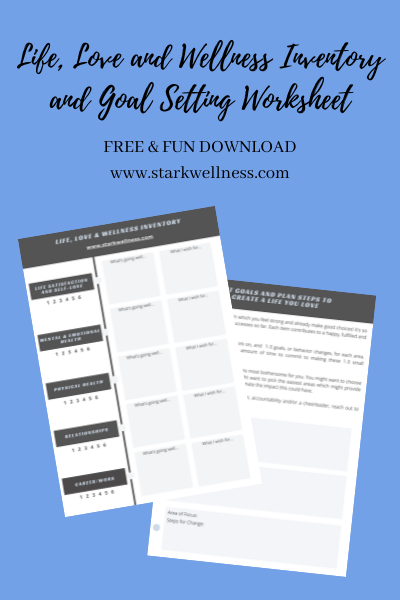We all experience mild depression from time to time; every year nearly 10% of adults and about 20% of teenagers report experiencing moderate to severe depression.
It IS possible to overcome depression.
Your symptoms may return from time to time, but when you have an arsenal of self-care activities and treatments that you know are effective for YOU, you’ll feel confident in managing those symptoms and recovering.

This blog post will give you a good start in understanding and relieving your depression. Of course, it can be especially helpful if you have support.
A qualified professional will help you:
- make quicker progress;
- teach you skills to stop the downward spiral of unhappiness, negativity, and self-defeating behaviors;
- sort out other accompanying problems (e.g. anxiety);
- and focus on actions you can take to get immediate and long-term relief from your depression.
BUT there is much you can do on your own to start your healing process. I hope you’ll find this to be a good start. And watch for future posts with more ideas and strategies….I have a ton!
If you’re experiencing severe depression and/or feeling suicidal, please contact the Suicide and Crisis Lifeline by dialing 988 or by visiting their website: https://988lifeline.org/.
Common Treatment for Depression
The treatment of choice for depression is usually Cognitive Behavioral Therapy. CBT includes skills and behaviors intended to change how your brain works. You can learn how to increase biochemicals in your brain that are associated with a sense of well-being—biochemicals such as:
- serotonin, linked to feelings of calmness and contentment;
- oxytocin, linked to feelings of love and connection;
- dopamine, linked to feelings of pleasure;
- endorphins, linked to feelings of positiveness and relaxation.
There are specific exercises you can practice that will enable you to actively stimulate these important biochemicals.
I’ll introduce some powerful exercises in this blog post (and more to come) to help you start healing and become more hopeful, motivated and joyful.
First, here is a quick dive into the different types of depression, symptoms of depression, and reasons why depression is so difficult to overcome.
Types of Depression
- Someone with Major Depression experiences symptoms of depressed mood, low motivation, and/or lack of interest for more than two weeks.
- Someone with Persistent Depressive Disorder struggles for years with episodes of major depression mixed with times of less severe symptoms.
- Some people experience Seasonal Affective Disorder during the winter months when there’s less sunlight. SAD is usually alleviated in the spring, but its impact during the winter months should not be underestimated.
- Someone with Bipolar Disorder will have bouts of depression combined with periodic highs, which can include feelings of euphoria and/or irritability.
- Expecting mothers or new moms can experience Prenatal or Postpartum Depression. Stress, anxiety and exhaustion can make care-taking extremely difficult.
- Children and adolescents may be diagnosed with Disruptive Mood Dysregulation Disorder if they have long-lasting irritability and/or frequent, intense outbursts.
- Females may experience Premenstrual Dysphoric Disorder during the menstruation phase of their cycles. Extreme physical and emotional symptoms can make it a very difficult time of the month.
Depression can exist with other problems, including addictions, disordered eating, relationship struggles, chronic health issues, and work-related stress. Some people with severe depression might have psychotic symptoms, such as disturbing delusions and/or hallucinations.
Why Depression is so Difficult to Overcome
If you’ve felt depressed, you might have begrudgingly wondered: Why does it seem to be so easy for some people to be happier than others? Why do some people quickly get over disappointments, heartbreaks and losses and seem to move forward without much of a hitch?
It’s possible that each of us is born with a predisposition toward a certain level of happiness, just as we are born with predispositions to have certain illnesses or diseases. But like with your physical health, your behavior can make a difference in your happiness.
You can defy your genetic predispositions; you can change many circumstances in your life.
You may never feel like dancing in the streets singing the song “Happy” like Pherrell Williams.
— Please know that’s okay.
You may not be able to muster up the same bubbly-ness as you see in the springing steps of that girl….you know the one.
— But don’t think something is wrong with you.
You may be less expressive because you were quieted when you were young and laughed “too loud”. You might have felt insecure about how your voice sounded, how your body moved, or what spontaneous words came out of your mouth when you felt excited about something. Perhaps shame kept you sullen if you lit up about something that someone else thought was juvenile, or if you wanted to crack up laughing about things other people didn’t find amusing.
In those cases, you have some work to do to overcome those blocks preventing you from expressing happiness. But you can take some simple steps right now to feel happier; and when you start to feel happier you can start cultivating deeper and more meaningful JOY that will sustain your lifted spirit.
And you might start singing in the streets….sometimes.
You have the power to be happy, to find fulfillment in your life, and to experience lasting joy. I wrote this to help you.
Understanding YOUR Depression
Here are some exercises you can think through or write about in a journal to help you understand your depression, start your healing process, and start feeling some relief.
Causes of Depression
There are many causes of depression and most of the time more than one factor contributing. Consider each of the following categories and particular things that might contribute to your depression.
1. What social and environmental factors might be related to your depression? Is there a lot of negativity and conflict within your family, social circles, work environment or other close relationships? Do you live in poverty or constant hunger? Are you personally experiencing or witnessing abuse, neglect, crime, violence, or poor living conditions in your neighborhood or town?
If you are experiencing or witnessing abuse you can get help here: https://victimconnect.org/resources/national-hotlines/
2. What types of changes have you experienced lately? Have you started a new job, exercise program, diet, relationship, habit? Or have you discontinued any of those? What about seasonal changes where you live? Colder, wetter, windier? Or opposites? These can all cause stress and affect your mood as well as chemicals in your brain. You should consider hormonal changes as well.
3. What is your personality type? Do you fervently hold unrealistic expectations for yourself and others? Are you constantly negative, highly self-critical, overly passive or dependent, or extremely anxious? Some personality types are more vulnerable to depression.
4. Do you know family members who’ve suffered from depression? Depression can run in families, and genetic factors can be triggered early or later in life.
5. Do you suffer from a severe or long-term physical illness? Chronic physical illness can certainly drain your physical and emotional energy, and being limited in your functioning can contribute to a depressed mood.
6. If you take medications (prescription or over the counter), are you completely aware of all possible side affects? Some medications can cause depression or exacerbate it.
7. How would you describe your drug and alcohol use? Drugs and alcohol can cause chemical changes in the brain that affect your mood. Sometimes we self-medicate with drugs or alcohol when we feel depressed but don’t realize the effects could actually keep us in a depressed cycle.
Symptoms of Depression
Depression takes many forms. A professional diagnosis for depression will depend on the amount and severity of symptoms as well as how long symptoms last.
On your own, identifying your most troubling symptoms can help you focus on what you need to do to feel better.
Here is a list of common symptoms of depression. Read through the list and make notes about symptoms you are currently experiencing.
You could make a chart of mild, moderate and severe symptoms. Or you could just list the ones that bother you most and interfere with your life on a daily basis.
- persistent feelings of sadness, negativity, pessimism, anxiousness, hopelessness, lethargy, worthlessness, boredom, emptiness, irritability, anger or guilt
- loss of interest or pleasure in activities you once enjoyed
- withdrawal from or avoidance of family and friends
- feeling that nothing in your life is important or worthwhile
- feeling deeply disappointed in yourself or like a failure
- leaving things undone
- frequent crying
- neglecting personal hygiene
- significant changes in appetite, weight loss or weight gain
- inability to sleep or excessive sleeping
- low sex drive
- continual restlessness or irritation
- reckless behavior or aggressiveness towards others
- drug or alcohol abuse
- constant fatigue or exhaustion
- indecisiveness or difficulty thinking, focusing, concentrating or remembering things
- headaches and muscular or joint pains without physical explanations
- digestive issues such as nausea, stomachache, diarrhea and/or constipation
- recurrent thoughts of or fears related to death, self-harm or suicide*
This is not an exhaustive list. If you’re writing your own list, add anything else you have experienced that you think may be a symptom of depression.
Also think or write about when you first started to have symptoms of depression. What was going on in your life at that time? Answer those seven categorical questions under “Causes of Depression” in regards to that time of your life.
For more information to understand depression: https://www.nimh.nih.gov/health/statistics/major-depression
If you are thinking about suicide, call the Suicide and Crisis Lifeline by dialing 988.
Getting Motivated and Hopeful for Change
One of the most debilitating symptoms of depression is the feeling that things will never get better. Plus, change can be difficult even when you’re highly motivated.
But there are many strategies that can help. In future blog posts I’ll describe dozens of activities that can help overcome depression. You’ll be able to acquire a large toolkit of ideas and tips to choose from and experiment with so you can discover which activities are effective for YOU.
For now, I’ve got a great lifestyle assessment and goal setting worksheet that you can download free. It will guide you to consider and rate five key areas of your life, remember and celebrate what’s going well for you, dream a little bit, and plan steps to achieve a few goals. The worksheets will be emailed to you immediately, and you’ll also be added to my email newsletter list so you can know right away when each of the next blog posts in this series are ready.
Download my Holistic Wellness Inventory and Goal Setting worksheet and get on my email list now!

Committing to Change – 10 Tips
Also in the mean time, here are 10 tips to help you get focused and committed to making some changes in your life so you can start to overcome your depression.
1. Schedule time to focus on your goals.
Devote time each day to work on managing and overcoming your depression. Write it in your planner, treat it like any other important appointment, and do your best to show up for yourself. If you follow along with me, you’ll continue to get lots of ideas for journaling, skill building, and other helpful activities. You’ve got to commit a small part of your day to implementing and reflecting so you can really find what will work for you. Maybe 20 minutes every morning or during a lunch break, or maybe 5 minutes in the morning to make a daily game plan and 10 minutes every night to reflect. If it works better for you to schedule a nice 2 hour block of time every Saturday or Sunday, do that. Just decide, schedule your time, and stick to it.
2. Celebrate your successes, no matter how small.
In what healthy ways can you reward yourself after you do something that helps you step closer to overcoming your depression. You might believe that just feeling a little bit better will be reward enough, but when you step out of your comfort zone or show up for yourself in a way you thought you couldn’t, acknowledging and rewarding your achievement can help keep you on track. Also….some strategies to overcome depression might not be that appealing to try at first, but promising yourself a reward after completion might keep you committed so you can discover that it’s actually more helpful than you thought.
3. Write out a detailed plan for one goal and commit to it.
It’s fun to do a brain dump and list all the things we want to do or accomplish. When it’s time to buckle down and work on overcoming depression, or any other problem, you’ve got to devise a plan. Write down one tangible goal, one specific behavior you want to change, or one strategy you want to try implementing. Write down the date you want to start and when you plan to reach the goal or pause to assess your progress. For a big goal, it’s wise to determine smaller sub-goals and do the same for each of those. Then list strategies you will use to accomplish the sub-goals and final goal. You might find this blog post about supercharged goal-setting helpful.
4. Share what you’re doing with people who support you.
You don’t have to share all the details, but you can tell people whom you love and trust that you’re working on something in your life and would appreciate their support. They’ll be happy to pray for you or send you good vibes, or they may even offer to do more. You might enlist an accountability buddy with whom you actually share your specific goals and schedule check-ins to help you stay on track. I would be honored to support you on your journey.
5. Set one goal at a time and identify small stepping stones to reach each goal.
Very few people can go all in on tackling a large goal, even when they feel extremely motivated. If you think getting out and meeting new people would help you feel better, list some small goals and steps you could take to help you do that–small steps like interviewing babysitters, checking the internet for local events you might enjoy attending, choosing something to do once a week. Write out a plan and give yourself time and space to accomplish each little step of the process. I like thinking of these as little experiments.
6. Track your progress.
Recording your progress every day will allow you to see what really works for you and keep you motivated. You could journal a little bit about your journey every day, spend some time weekly recapping your efforts, or chart your progress by listing the strategies you try and the outcomes you experience.
7. Set a daily intention.
This is a great way to begin each day. You could decide on a guiding word, principle, scripture, or mantra, etc. For example, I start each day saying “May I be light in mind, body, heart and spirit”. This phrase represents my intention to live lightly, to be open-minded, flexible, forgiving and unattached. That’s my intention each day, the spirit by which I want to live. What’s yours?
8. Show yourself compassion and grace toward your efforts.
Self-criticism and perfectionism will hinder your efforts to overcome depression or change in any way. Expect setbacks. Watch how you speak to yourself about being depressed. You are not “broken”. Act like a good parent believing in, guiding and encouraging a child with compassion and love. Be your own best friend who is understanding, caring and kind.
9. Think and act like your hero.
Who inspires you? Who do you know that has overcome an almost insurmountable problem? Imagine what that person would say to you to encourage your efforts to conquer your problem. This doesn’t have to be someone you know personally. There are many men and women who speak out about their triumphs over depression and traumas hoping to inspire and motivate others.
10. Acknowledge your progress each day.
No matter how small, celebrate positive changes that you make in your life each day. If you’ve stayed for days locked indoors, one moment outside in sunshine is progress. If you’ve been pushing food away, a small smoothie for breakfast is progress. Focus more on the positive changes and less on what has been causing you distress. Things may remain difficult for a while, but don’t underestimate the little things you can do to start leading a happier and more fulfilling life.
You can overcome depression if you set the intention, stay focused and committed. Following these 10 tips for a good start.
Additionally, here are some blog posts with more concrete strategies to help:
Journal Yourself Happy With These 5 Methods
5 Ways to Lift Your Mood and Awaken Joyful Energy

Hi! I’m Jennifer, your life, love and wellness coach! I help men, women and couples figure out what’s keeping them from being happy and healthy so they can overcome those blocks and determine and implement steps to truly improve their lives, relationships, and physical and mental health. I’m a certified Professional Life Coach and Holistic Health Coach with a background in professional counseling. I’m ready to help you. jennifer@starkwellness.com
[…] people are vulnerable to depression in summer. Some people might be triggered by loss or other life stressors that occurred this time […]